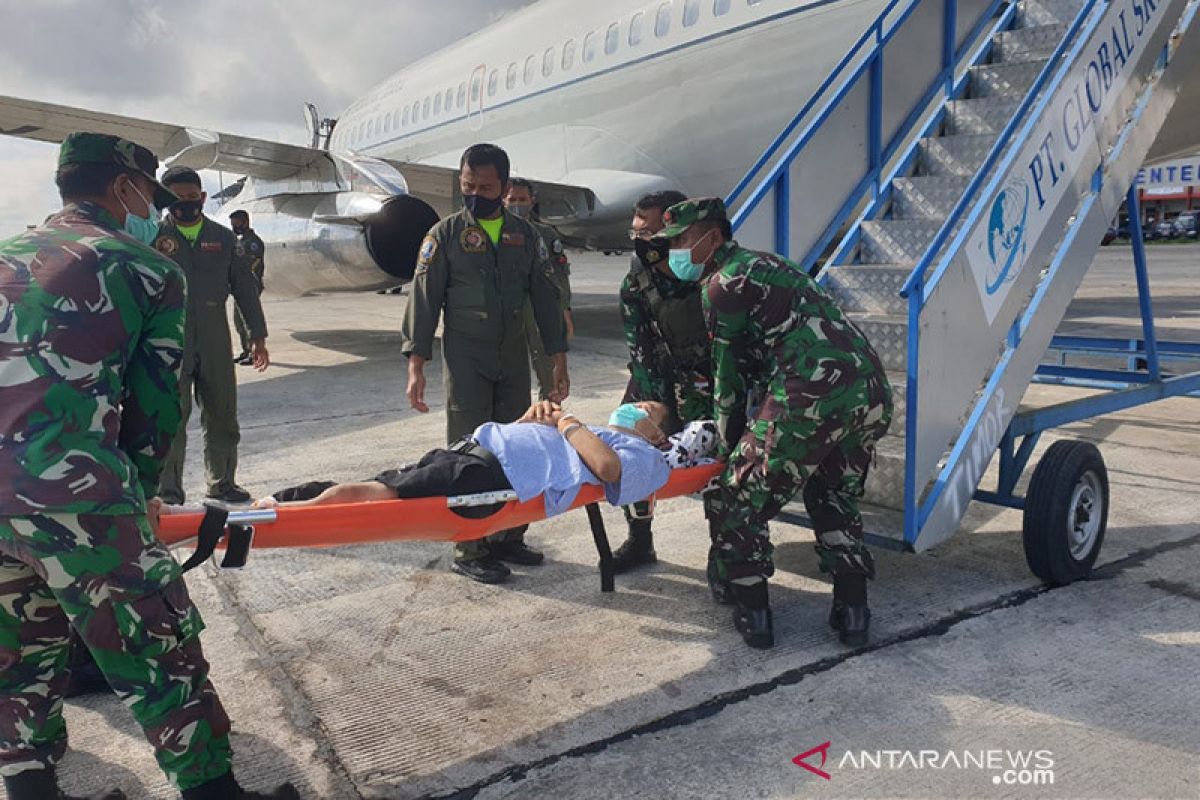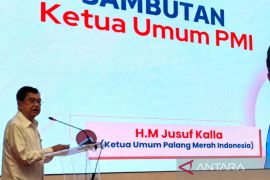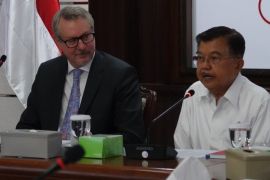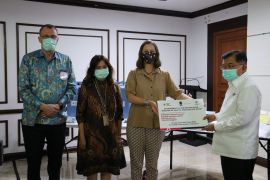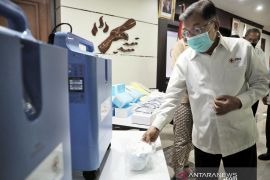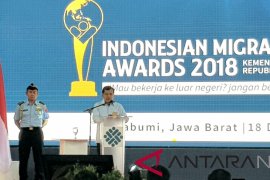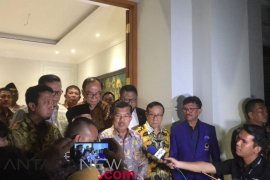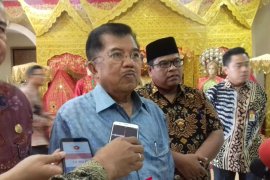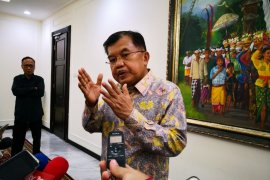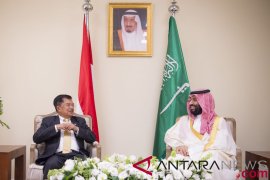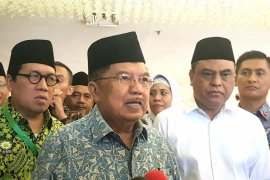Intan Jaya district recorded its bloodiest month in September this year, with armed groups mounting a string of attacks in the area, which left two soldiers and two civilians dead and two others injured.
The notorious armed groups in the Indonesian province have continued their acts of terror in October.
On October 6, 2020, for instance, several members of an armed Papuan group reportedly fired at an Indonesian Military (TNI) post in the Pasar Baru Kenyam neighborhood of Nduga district, injuring one civilian.
The civilian, identified as Yulius Wetipo (34), got shot while crossing the TNI security post on his way to work, according to information received by ANTARA. He was headed to the PT Dolarosa camp.
He reportedly sustained gunshot wounds on the left and right side of the waist.
Related news: Intan Jaya case TGPF's final report targeted on Oct 17
Related news: Mahfud MD claims ambush against fact-finding team premeditated move
On October 9, 2020, another armed group ambushed a joint fact-finding team (TGPF) set up by the government to probe a recent shooting in Mamba village, Sugapa subdistrict, Intan Jaya district.
The West Papua National Liberation Army (TPNPB) confirmed it was behind the attack on the members of the TGPF. One of the fact-finding team's members and a soldier were injured in the attack.
The TGPF member — Gadjah Mada University (UGM) lecturer Bambang Purwoko — was shot in the leg, while TNI soldier First Sgt Faisal Akbar of the Hitadipa Task Force sustained injuries on his waist.
According to the records of the Papua police headquarters, over the past nine months, armed groups operating in Intan Jaya have been involved in 17 cases of violence against innocent civilians and security personnel.
As a result of the increasing acts of lethal violence, six people, including the Indonesian Military (TNI) personnel, have died, Papua police chief, Inspector General Paulus Waterpauw, revealed recently.
Armed criminals have not only targeted civilians and security personnel, but also set ablaze several excavators and kiosks.
In the past, armed groups used to cross Intan Jaya's areas en route to several mountainous areas, including those in Tembagapura sub-district, Mimika district. However, at present, they have made the district their base.
Waterpauw revealed that six armed groups are currently active in Intan Jaya's areas, including Hipadipa sub-district. They are led by Sebinus Waker and reportedly possess 17 rifles.
They reportedly snatched the weapons during raids against TNI and police personnel, including a Steyr rifle, which they had grabbed in 2015, he pointed out.
In response to the ongoing cycle of violence, a legislator representing the Papuan constituency has appealed to the police and TNI to work closely with regional governments and Papuan communities for handling and seeking solutions to the conflict in the province.
"The prioritized policies of the law enforcement and security agencies in Papua are: how to create a sense of security and comprehensive peace on the land of Papua," Yan Permenas Mandenas, a member of the House of Representatives (DPR), said.
He opined that the armed groups behind the crimes must be arrested and brought to justice to allow local communities to resume their peaceful lives, and the regional administrations to continue serving the people.
The disruption of peace and stability in the province may pose serious threats to the sustainability of the government's development programs for bringing socio-economic prosperity for the entire Papuan people.
To seek solutions to the Papuan conflict, the Defense Ministry initiated a focus group discussion in Jakarta on October 14, 2020 during which, Indonesia's former vice president, Jusuf Kalla, was invited as a guest speaker.
Kalla argued that in principle, all violent conflicts can be resolved through peaceful settlement, but each conflict-torn area may demand a different approach. Regarding the Papua conflict, its resolution approach may be distinct from that of Aceh.
Since Indonesia's independence in 1945, the country has experienced 15 large-scale conflicts, most of which have been resolved through military operations, he noted.
"In an independent Indonesia, we have undergone 15 large-scale conflicts with around 1,000 fatalities. Thirteen of the 15 large-scale conflicts were resolved through military operations, while the remaining two were solved through peaceful settlement," he said.
As an initiator of the peaceful resolution to the Aceh conflict, Kalla highlighted the importance of firmly resorting to the basic principle of delivering a win-win solution to achieve everlasting peace.
Referring to his own experience in bringing about peaceful conflict resolution in Aceh, he said the Free Aceh Movement (GAM) never surrendered the firearms of its armed wing's personnel to the Indonesian government.
Instead, according to Kalla, GAM destroyed the weapons, considering that the best option for preserving its dignity. Therefore, in seeking a peaceful solution to an armed conflict, none of the warring parties must feel like a loser or feel their dignity has been lowered, he said.
"Aceh, that was so resistant, could be persuaded to resolve the conflict through a peace talk," he said, adding that in resolving the Papuan conflict, the same strategy used for conflict resolution in Aceh cannot be applied.
In Aceh, the armed groups had a clear chain of command so the approach was prioritized at the upper level, while in Papua, the armed groups belong to various factions without a well-defined chain of command, he argued.
In Papua, armed groups operating in one district or village have no clear chain of command with those in other districts or villages, he said. This fact does not imply that the conflict in the area cannot be resolved, he remarked.
"Ways to resolve it (the conflict) remain available, but I will not elaborate on them openly here," Jusuf Kalla said.
What Kalla has pointed out, however, still offers the hope that there is a light at the end of the tunnel for seeking a peaceful settlement to the Papua conflict, within a framework of the Unitary State of the Republic of Indonesia.
Related news: All violent conflicts can be resolved peacefully: Jusuf Kalla
Related news: Govt must prioritize peace diplomacy in Papua: House Speaker
Editor: Sri Haryati
Copyright © ANTARA 2020
